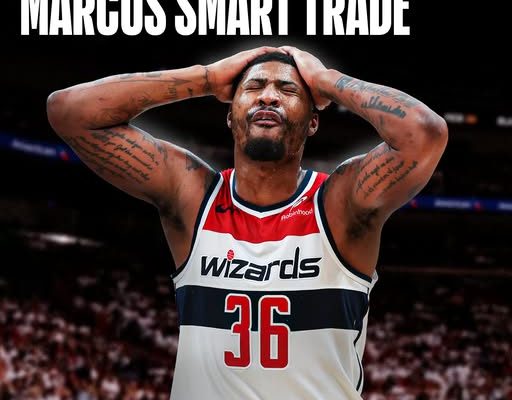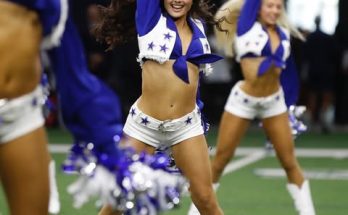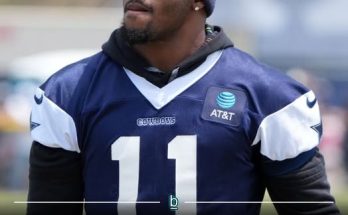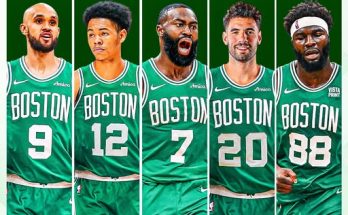Marcus Smart’s NBA journey has always been defined by grit, hustle, and an unapologetic commitment to the defensive end of the floor. The former NBA Defensive Player of the Year has long been viewed as one of the toughest competitors in the league, someone whose contributions often go well beyond the box score. But even the most loyal defensive warriors can become casualties of front-office retools, and Smart has once again found himself at the center of a transactional whirlwind. According to multiple league insiders, the Washington Wizards were actively exploring trade possibilities involving Marcus Smart before ultimately deciding to move forward with a contract buyout. The decision may not have shocked those in the know, but for fans of Smart’s signature hard-nosed style and veteran leadership, the move signals another dramatic turn in what has already been an eventful year for the defensive stalwart.
After being traded from the Boston Celtics to the Memphis Grizzlies last offseason, Smart was expected to bring maturity, defensive accountability, and vocal leadership to a young Memphis squad hungry to make a postseason impact. Unfortunately, injuries and chemistry issues plagued the Grizzlies throughout the 2024–25 campaign, and Smart’s time in Memphis never quite materialized into the stabilizing presence many hoped it would be. The team underperformed, and as the front office began preparing for the next phase of their roster overhaul, Smart quickly became an expendable asset. Washington, who acquired Smart in a midseason deal involving Tyus Jones and draft picks, briefly flirted with the idea of keeping him around to provide a veteran anchor for a rebuilding team. But league sources confirm the Wizards were actively working the phones, attempting to find a landing spot that could offer real value in return for Smart’s services.
The problem wasn’t interest—several contenders, including Miami, Milwaukee, and Phoenix, reportedly inquired about Smart’s availability. But the sticking point in each case was the contract. Smart, who is owed nearly \$20 million next season, became a financial obstacle for teams already pressed against the luxury tax. Some hoped Washington would retain salary or attach draft compensation to sweeten a deal, but the Wizards, committed to preserving long-term cap flexibility, refused to bite. Without a clear path to a trade and unwilling to carry the cost of a veteran on a timeline that doesn’t align with their youth movement, Washington reached the inevitable conclusion: a buyout.
The buyout not only frees up room on Washington’s books but also grants Smart the ability to choose his next destination. For a player of his caliber—one who remains one of the most respected defensive minds in the game—interest will come quickly. Teams looking to contend for a title recognize the intangible value Smart brings. He is a communicator, a motivator, and a fierce competitor. He’s also one of the few guards in the league capable of guarding all five positions in a pinch. His ability to rotate, take charges, disrupt passing lanes, and neutralize elite scorers is still elite when he’s healthy. At 31 years old, Smart may not be in his physical prime, but his basketball IQ and instincts more than compensate.
For teams like the Golden State Warriors, who could use additional perimeter defense and leadership in the second unit, or the Los Angeles Lakers, who have lacked a consistent defensive presence at guard, Smart represents a compelling target. Even the New York Knicks, with Tom Thibodeau’s fondness for gritty defenders, could make a compelling case. What Smart decides to do next may depend less on money and more on fit, culture, and the opportunity to compete at the highest level.
While his offensive game has always been a polarizing topic, with critics pointing to his shot selection and streaky three-point shooting, Smart’s willingness to take big shots in high-leverage moments has also made him beloved by teammates and fans alike. His tenure in Boston was marked by clutch performances, emotional leadership, and a willingness to be the team’s vocal compass during both highs and lows. For nine years, he personified the Celtics’ identity—hard-nosed, relentless, and unafraid of the moment. That legacy, though complicated by occasional controversies or heat-of-the-moment outbursts, remains a lasting testament to what kind of player he is.
It’s worth noting how Smart handled the trade from Boston to Memphis last year. He was blindsided by the move, having believed he would retire a Celtic. Yet he never let that disappointment affect his professionalism. He showed up to Memphis ready to lead, and even through injuries, tried to mentor Ja Morant and Desmond Bane. Coaches praised his presence in the locker room even when he was sidelined. That type of leadership is hard to quantify but remains invaluable—especially on younger rosters or among teams navigating postseason pressure.
So where does Smart go from here? The buyout market isn’t typically a playground for elite defenders in their early 30s, but Smart is not a typical buyout candidate. Unlike aging vets with minimal upside, he can still guard multiple positions, initiate offense when needed, and be a key rotational player—or even a starter—on a contender. His leadership isn’t performative, and his fire is not in question. Whether he chooses a Western Conference team hungry to dethrone Denver or an Eastern Conference squad looking to match Boston’s physicality, Smart is going to make a meaningful impact somewhere.
Some around the league wonder if Smart might consider a reunion with Boston down the line. While the Celtics are deep at the guard position with Jrue Holiday, Derrick White, and Payton Pritchard, Brad Stevens has never closed the door on bringing back former players who understand the organization’s culture. But Smart may be looking for more than nostalgia. He’s likely to want meaningful minutes, a defined role, and a chance to chase another deep playoff run.
This move also speaks volumes about how the NBA values contracts in the modern cap era. It’s not just about talent anymore—it’s about flexibility. A player like Smart, whose contributions are undeniable, can still be moved or bought out simply because of salary cap math. The Wizards didn’t part ways because of performance issues or locker-room concerns. In fact, by all accounts, Smart was a consummate pro during his short time in Washington. But the front office saw no path to real contention in the near future and chose to prioritize player development and financial liquidity.
For Smart, the sudden availability offers a new chapter—one he didn’t seek out but is more than equipped to tackle. He has never been the kind of player who shrinks from adversity. If anything, he thrives in it. Being overlooked, doubted, or displaced has only fueled his career arc. It’s what made him a lottery pick out of Oklahoma State despite critics questioning his offensive polish. It’s what helped him evolve from an energetic rookie into the emotional engine of a perennial playoff team. And now, it’s what will guide him into his next opportunity—whether that’s off the bench for a Finals contender or as a defensive closer in critical playoff minutes.
The broader basketball community will be watching closely. Smart has always carried a chip on his shoulder, and with free agency-level autonomy now in his hands, don’t be surprised if he chooses a destination that allows him to send a message. Whether it’s hounding Stephen Curry on national television, taking a crucial charge in the conference finals, or hitting an unexpected corner three in Game 6, Smart still has the potential to shift momentum and energize a team’s postseason identity.
For the Wizards, it’s yet another signpost on the road of their long rebuild. They are leaning into youth, spacing, and future picks, with a front office that understands the modern game’s financial chessboard. Letting go of veterans like Smart may not yield immediate wins, but it opens doors for younger talent to develop and positions the franchise to strike when opportunity presents itself.
For Marcus Smart, however, this isn’t an end. It’s just the next fight. And if history has shown us anything, it’s that betting against Marcus Smart usually doesn’t end well. He’s not just a player. He’s a tone-setter, a culture carrier, and a playoff wildcard. Somewhere out there, a title contender just got a lot more interesting. Because Marcus Smart is back on the market—and he’s bringing that trademark fire with him.



